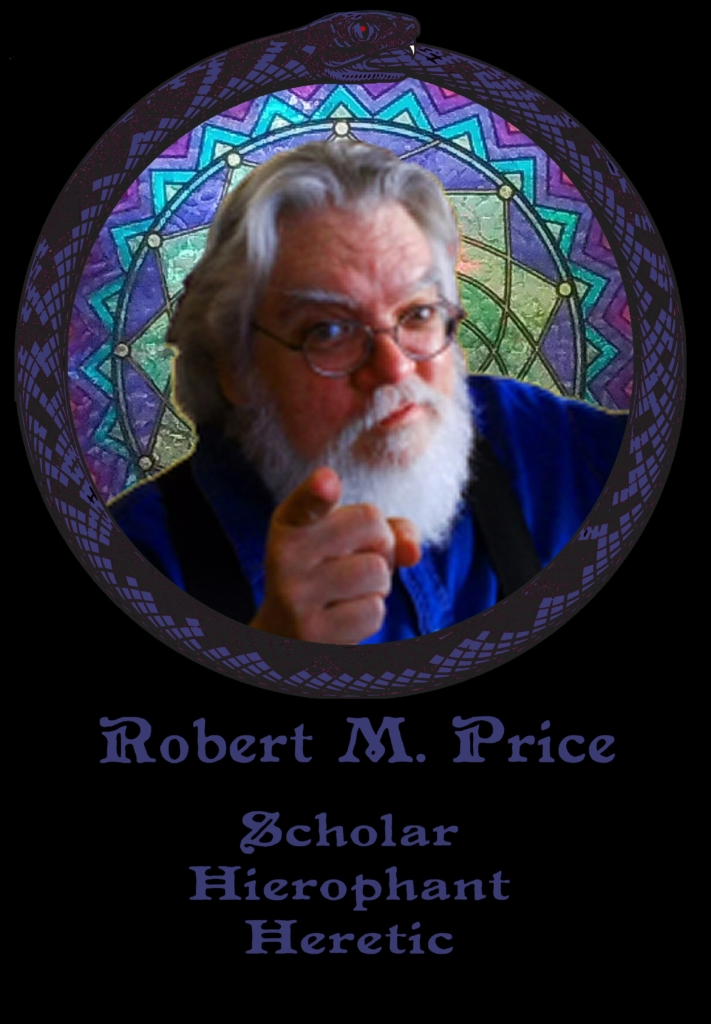Richard Dawkins has ventured the opinion that theologians are experts in a subject without any subject matter. I take him to mean they are engaged in nothing but “mental masturbation.” They are, he thinks, like a group of Star Wars fa ns I once knew who believed the events of the movie were real, but in a different universe (in which they would have much preferred to dwell). Or imagine a self-proclaimed zoologist who specialized in werewolves, unicorns, and dragons. There is a large element of truth in such comparisons and thus also in his disdain. And yet I can’t help thinking he is engaging in overkill.
ns I once knew who believed the events of the movie were real, but in a different universe (in which they would have much preferred to dwell). Or imagine a self-proclaimed zoologist who specialized in werewolves, unicorns, and dragons. There is a large element of truth in such comparisons and thus also in his disdain. And yet I can’t help thinking he is engaging in overkill.
I am sure Professor Dawkins does not discount the importance of numerous fields like Anthropology, Psychology, and Sociology of Religion, much less the History of Religion, because these fields of study serve purposes valuable to secular intellectuals and to society at large. To put it bluntly: you need to know your enemy. The world is aflame with murderous religious fanatics, and we need to understand what motivates those who kill “infidels” with clean-conscience and abandon. We need to know the harm such jihads of madness have done in the past if we want to gauge dangers in the present.
Biblical Studies are, obviously, relevant if only to, as Robert Ingersoll did, demonstrate that the threatening gun is loaded with blanks, to render the Bible useless as a tool of oppression. It is imperative to debunk the notion that the Bible is the infallible Word of God, and this is true even if you think what the Bible says is not so bad, because it is still used as a ventriloquist dummy to impart divine authority to those demagogues who claim its inerrancy for their own opinions. I can think of people on the Left as well as the Right who make Scripture into their own private Charlie McCarthy.
My friend Hector Avalos has called for “the end of Biblical Studies” (in his great book of that title). What, is he trying to put himself out of a job? No, he means to call the bluff of those who merely use scholarship to defend the Bible in the manner of apologetics—spin-doctoring. A good example would be the study of “Biblical Archaeology,” which was essentially founded as an elaborate campaign to defend the accuracy of the Bible against the skepticism of the Higher Critics of the Nineteenth Century. Now this axe-grinding pseudo-archaeology has been revealed as cut from the same cheap cloth as “Scientific Creationism.” The new Ark replica unveiled by Ken Ham is a prime example of both.
What is less obvious as a piece of biblical PR, and from an unexpected quarter, is the sophisticated (but sophistical) production of scholarly studies that attempt to show that the Bible really supports equal rights for women and homosexuals, opposes colonial imperialism, fosters ecumenism, etc. The goal here is twofold. First, there is the cynical, Grand Inquisitor-like attempt to use the voice of unearned authority to trick the pew-potatoes into voting for so-called “Progressives” because the Bible is “really” on the Left, and so you should be, too. It is propagandistic manipulation, what some Liberation and Feminist Theologians call “a useable past.” You know, like the Ministry of Truth in Orwell’s 1984.
But the flip side of that coin is that such scholars also seek to rehabilitate the Bible’s reputation by arguing that it has good “Progressive” things to say (and that the bad stuff is either irony or interpolation). Why do they want to do that? Possibly to justify clinging to a self-identification as a Christian of some type.
I understand Hector to be calling the bluff of both Conservative and Liberal scholars who are grinding “the axe of the apostles.” I don’t read him as demanding that the study of the Bible be banned or boycotted. Rather, I would describe the situation as analogous to a bunch of neo-polytheists urging everyone to take Hesiod’s Theogony and Homer’s Iliad and Odyssey as infallible and historically inerrant. Classicists would enter the fray to demonstrate the mythic-fictional character of those works, but they would not discourage the study of these great old texts.
I think another friend of mine, John Loftus, means the same thing when he urges universities to drop Philosophy of Religion courses. So much of it has been (again) apologetics, propping up the faith of those would-be believers whose intellectual consciences forbid them to exclaim, “Oh, to heaven with it!” and just “believe.” (Still, you can teach Philosophy of Religion with a critical approach.)
I’m not sure Professor Dawkins stops there, however. I remember hearing him deride the Catholic doctrine of Transubstantiation as “a rabbi turning himself into a cracker.” The line got lots of laughs, but I didn’t join in the general hilarity. I knew from this joke that the noted atheist was not bothering to try to look at the question from the inside, the only place it makes any sense, and where it does make sense. It is its own language game, though most of those who play it are not aware that’s “all” they’re doing.
If you’ve been on the “other” side, whether religiously, politically, whatever, then switched sides, you know you can’t simply dismiss the old frame of reference as nothing but gibberish. You know there is a method in the madness, that it’s not just madness, even if you can no longer affirm it. I think of how, when I first read about Deconstruction, I thought it was crazy. But, as Mary Midgley said, when we call something “crazy” it just means we don’t understand it. And then I realized there had to be something to it that was not then apparent to me. So I read more, trying to see it. And I finally did see it.
In fact, I now see what first seem like absurdities as opportunities to expand my mind to see (and possibly embrace) new perspectives. I tried to convey this to a student in an Adult School course I later taught about Deconstruction. Though a very learned man, he went in with an attitude of unremitting determination to see and expose Deconstruction as nonsense. What a shame, because, if it wasn’t nonsense, he’d never be able to see it. You have to have an attitude of teachableness, and this man, for all his intelligence, did not. His loss.
Well, I have been on the side of theologians and believers. Though I have long since switched sides, I remember what it was like. And I know that theology is not a subject without subject matter, like Unicornology. Whether you are a believer or an atheist, you may approach theology as a subdivision of the history of thought that deserves at least as much respect as, say, ancient or medieval Philosophy. You most likely don’t find the views of Parmenides and Xeno to be persuasive. You don’t buy the idea that what the senses report to us has no relation to external reality, an infinite expanse indistinguishable by divisions or distinctions, and so on. But were the Eleatics just gushing verbal salad? You’re the fool if you think so.
In the same way, I just cannot look at the philosophy of Thomas Aquinas or the theological systems of Karl Barth and Paul Tillich and X it all out as a bunch of glossolalic gobbledygook. The interplay of competing concepts is exhilarating to explore! All the more if it is initially strange to you!
Theology thinks it is telling us about God. I don’t think there is a God. But theology has much the same attraction as mythology. Both are the cartography of dream worlds. Doesn’t that mean
Richard Dawkins is right after all: it’s just a stupid waste of time? No. Hans Jonas and Rudolf Bultmann explained how “every statement of theology is at the same time a statement of anthropology,” and that is the basis of demythologizing. To demythologize is to decode stories of, and beliefs in, God(s), to reveal the self-understandings of those who produce and who live by the myths. People who inherit or embrace (factually erroneous) myth systems assimilate their dictates and definitions. The systems of belief are projections of the “symbolic universes” (Peter Berger and Thomas Luckmann) inside the heads of believers. This is the truth of the formula “As above, so below.” Theology does have subject matter: human beings.
I sent my Soul through the Invisible,
Some letter of that After-life to spell:
And by and by my Soul return’d to me,
And answer’d “I Myself am Heav’n and Hell:”
(Omar Khayyam, Rubaiyat, LXVI)
So says Zarathustra.


